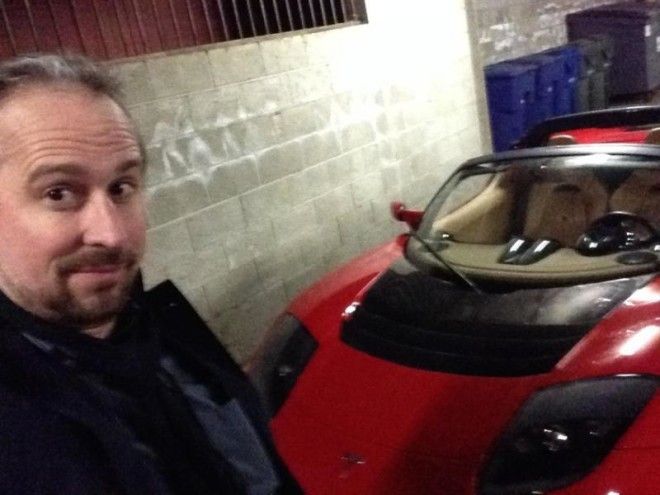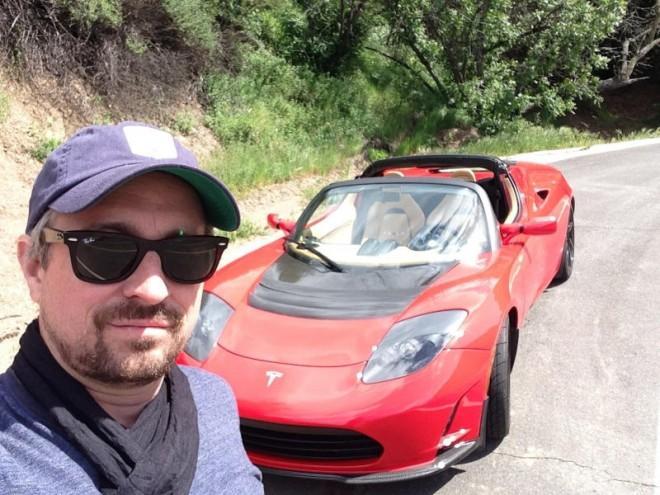It's hard to overestimate the importance of this car, which sold for over $100,000, turned in blistering acceleration, and could top 200 miles on a single charge.
The Roadster changed our minds forever about what an electric car could be and launched Tesla on a road to its current $30 billion market cap and a portfolio of, by 2017, three vehicles: the Model S sedan, the Model X SUV, and the Model 3 car for the masses.
Last year, I reminisced about my first time with a Tesla to one of the company's staffers. This led to a question: Do we even have a Roadster around to check out anymore?
They found one, and I was reunited with my old friend in Los Angeles, on the eve of the Model 3 unveiling in late March.
Something poetic and romantic about that, I think. Read on to see what it was like.
We were so much younger then ... That's me in early 2010, after a spin in the Roadster Sport version 2.0.
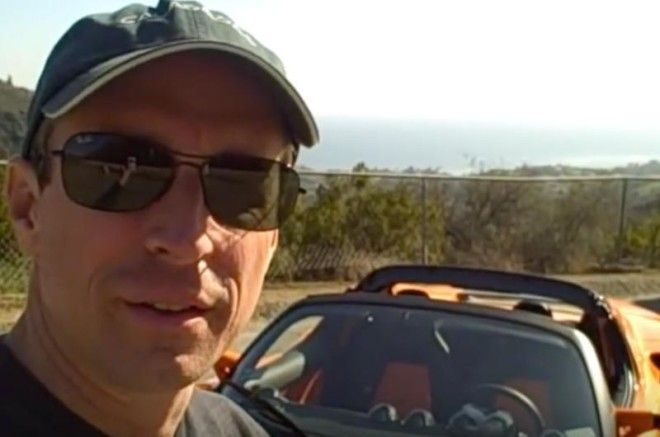
I made a video about the fun.
Since then, I've driven every other Tesla, starting with the base Model S sedan.
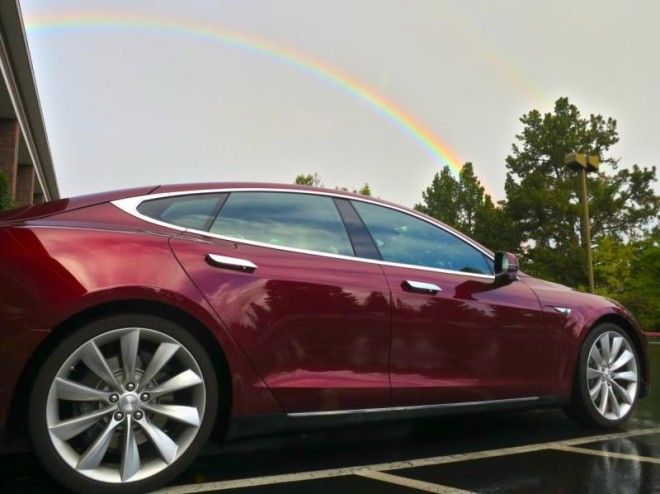
I also sampled the high-performance Model S P85.
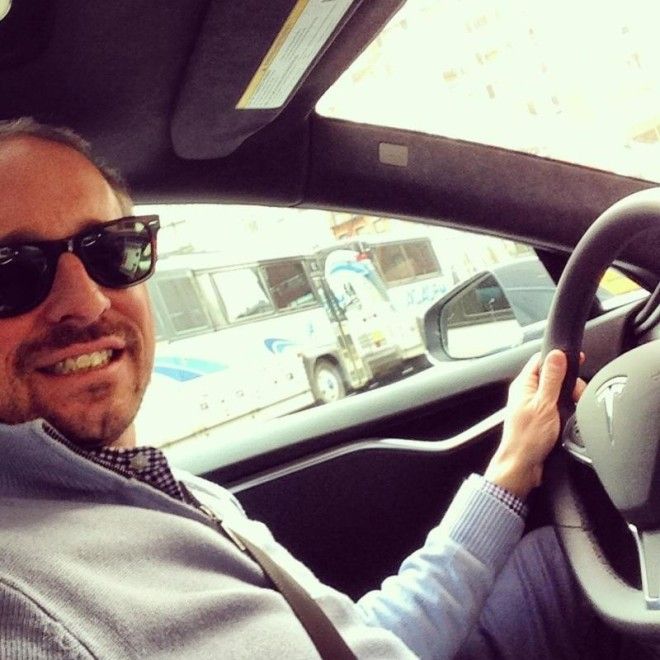
And the all-wheel-drive P85D.
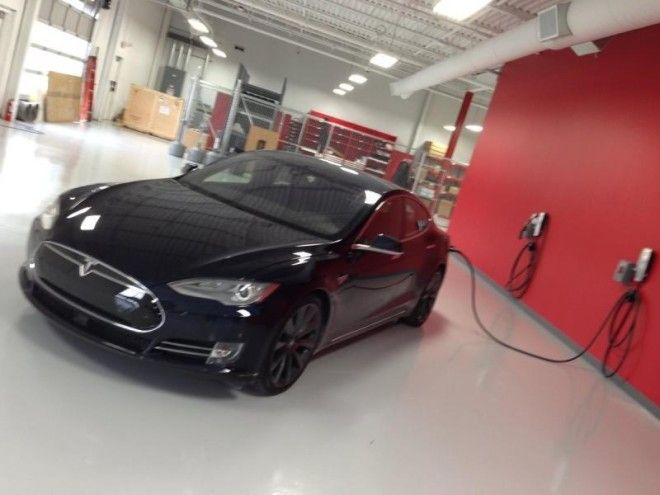
Then came the P90D with "Ludicrous Mode" acceleration: zero to 60 mph in 2.8 seconds!

I even experienced Autopilot semi-self-driving.

And earlier this year, I got to try out the new Model X SUV.
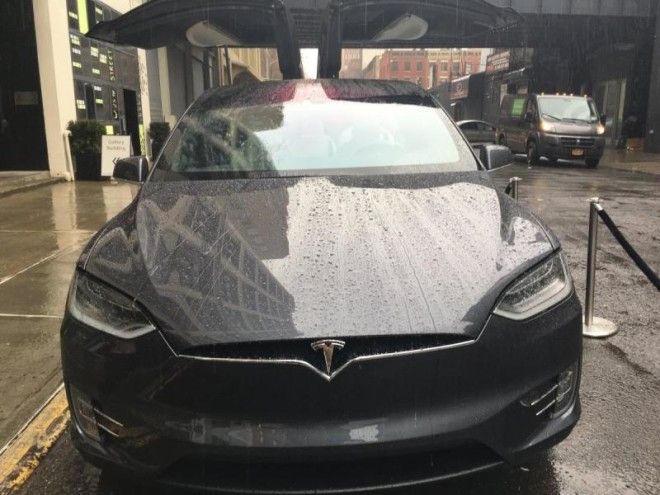
To be reunited with the Roadster, I headed west to Los Angeles and visited the Tesla service center near LAX airport.
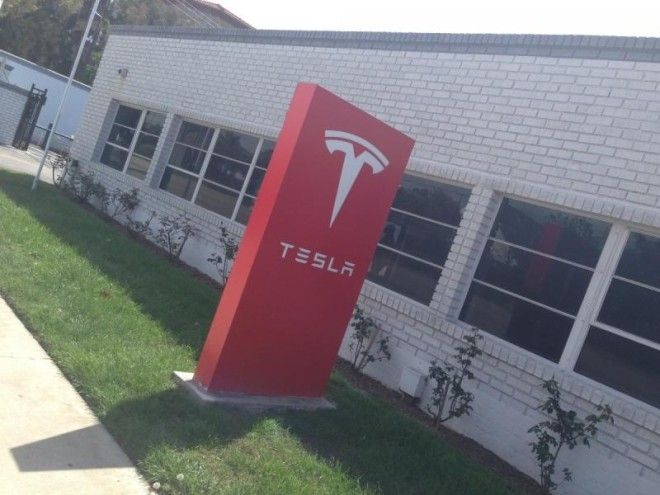
The whole thing came about because I told Tesla how much I had enjoyed the Roadster in 2010 — I called it hot-orange electric sex at the time — and asked if it still had one around.

Here's the waiting area for the service center. Tesla actually discontinued Roadster production a few years back, but the company has continued to upgrade the car for loyal owners.
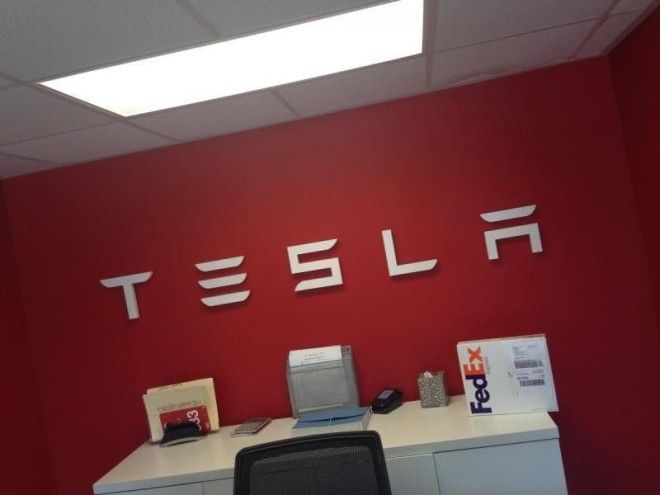
And there she is! This is the Roadster Sport, version 3.0. It has a juicier battery pack, serving up more range — 350 miles per charge — plus all the tasty carbon-fiber goodies from the original version. The top is a simple targa/spyder design: roll up the fabric, remove two struts, and stow everything in the trunk behind the battery.

The Sport was an evolution of the original: more luxurious and performance-oriented.

Presto! Open-air, all-electric motoring.

You fire the Roadster up with a good old-fashioned key — not push-button start.

There's another company that still hands out keys: Ferrari!
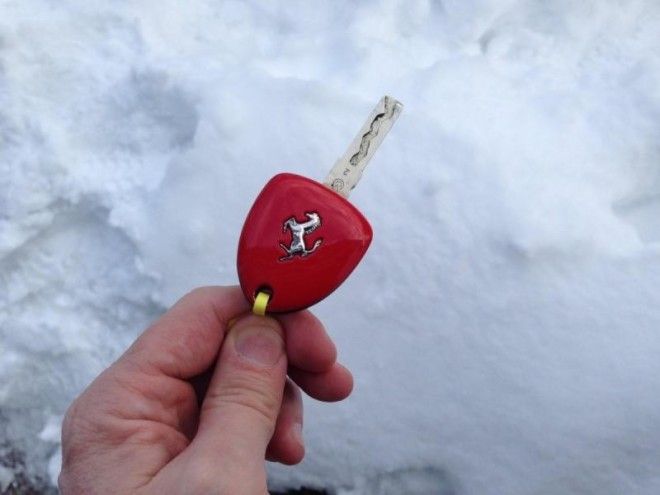
I'd have the Roadster for a few days in the glorious SoCal sunshine, and my plan was to recreate the drive I took in 2010.

This would entail a jaunt north on the Pacific Coast Highway to Malibu, a right turn onto Latigo Canyon Road for some very technical twists and turns, followed by a run across Mulholland Drive, then back down Malibu Canyon Road to the PCH.

But first I made a quick stop for lunch.

My favorite beachside joint: the cafe at Paradise Cove.

Back in the 1970s, this is where Jim Rockford parked his trailer on the TV show.
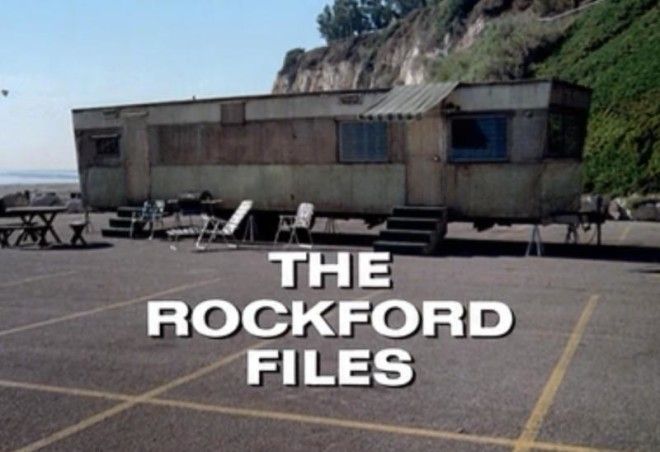
Now it's a nice place to lounge around as the Pacific Ocean laps the shore and the California sun shines down.
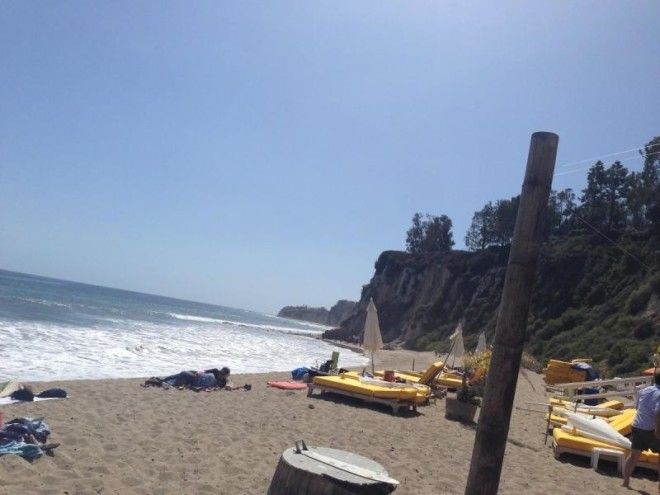
It's rustic and cool.

Also, delicious fish tacos.

Properly fortified, I head back to the Roadster.
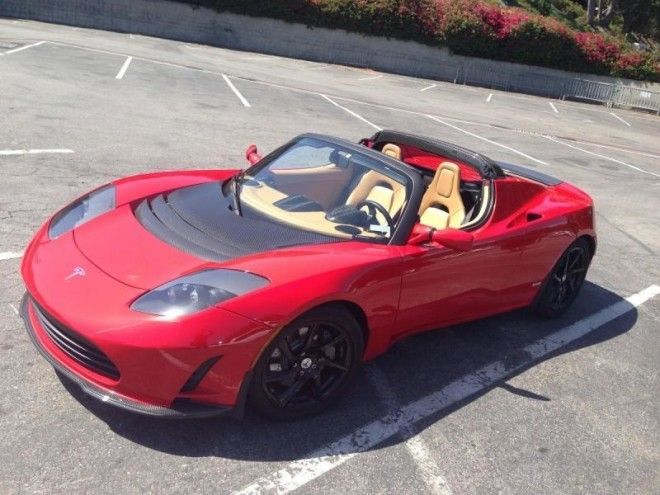
Not a lot has changed in the past six years.
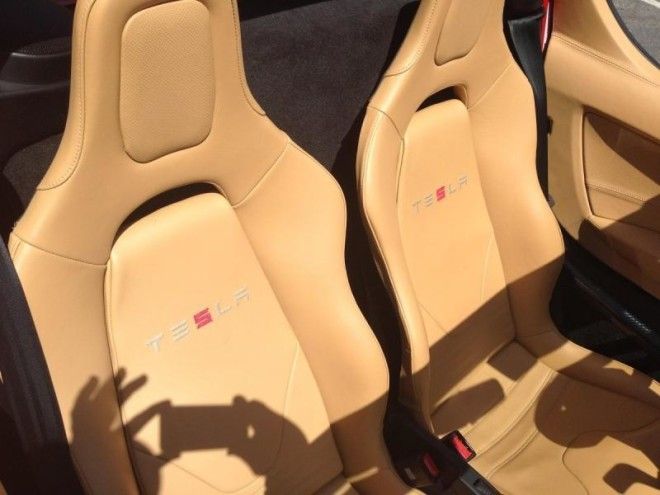
The interior is nice, but not excessively luxurious. Carbon-fiber is everywhere and you sit down in a little two-seat tub. The Momo steering wheel is all business — and there's no power steering! More on that later.
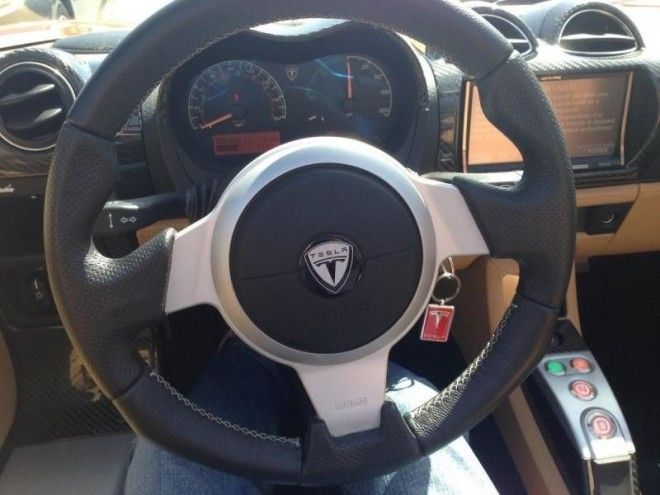
Yep, that's carbon fiber. Get used to looking at it.

The transmission couldn't be simpler. Electric cars have only one gear. And they have maximum torque at 1 rpm, which is why the Roadster can hit 60 mph in 3.7 seconds. All day long. And still serve up impressive range.
Advertising
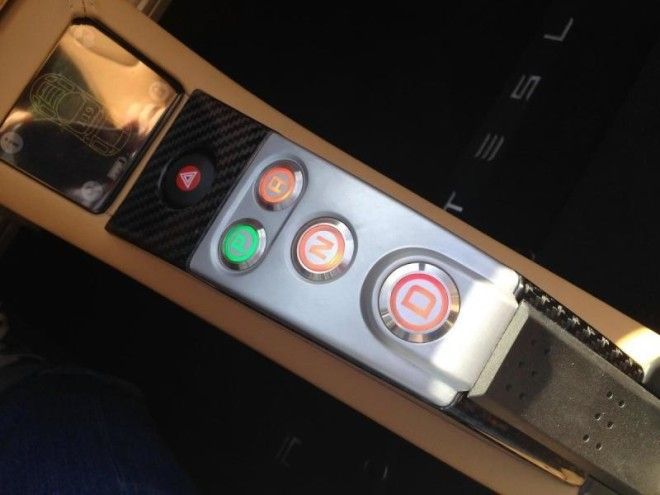
The carbon fiber glistens in the sun.
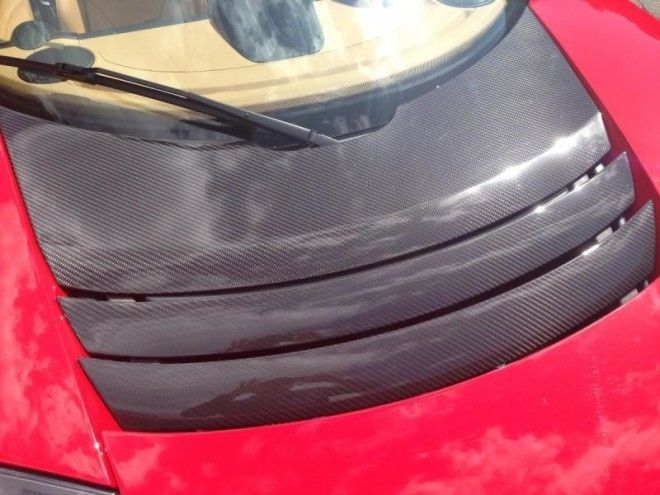
I liked the Roadster in orange, but it looks spectacular in red.
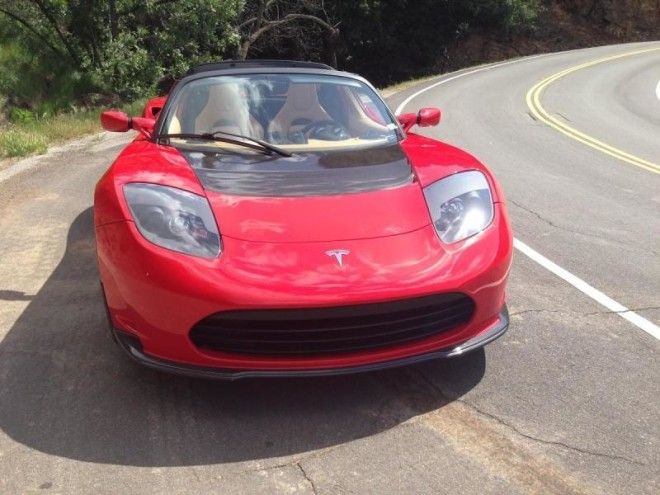
Really spectacular. Hot-red electric sex? For sure.
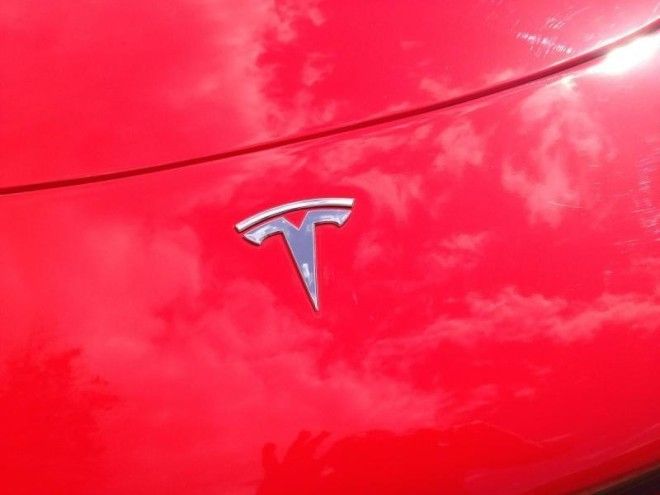
Sexy from every ...
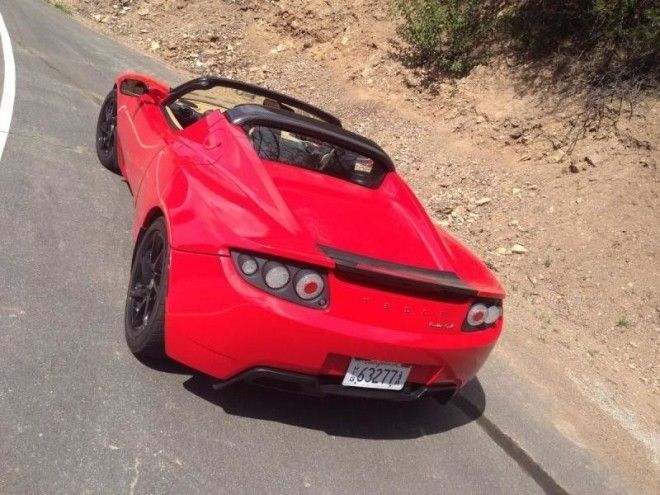
... single ...
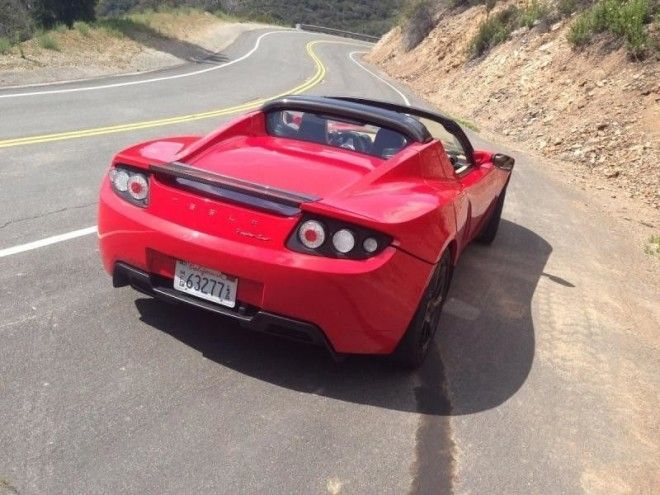
... exquisite ...

... angle.

The driving experience was like a time machine. Because you don't shift gears, you devote all your attention to accelerating, braking, and steering.
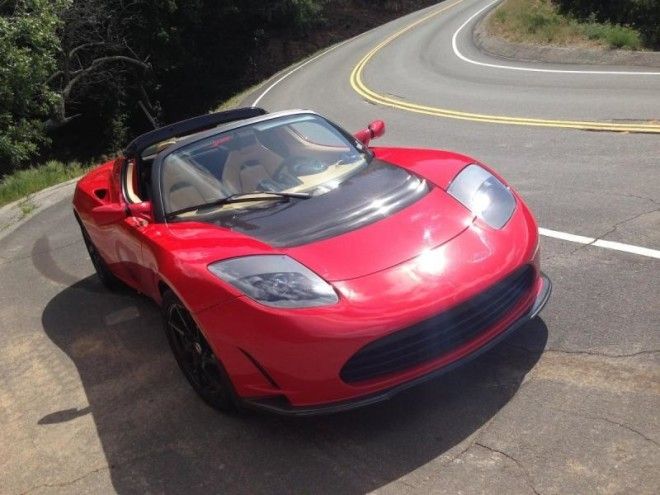
And it truly is the steering that brought me back. Like the Lotus Elise that the Roadster is based on, the steering is heavy but crammed with feedback. The lack of power assist gives you a point-and-shoot sense at speed.
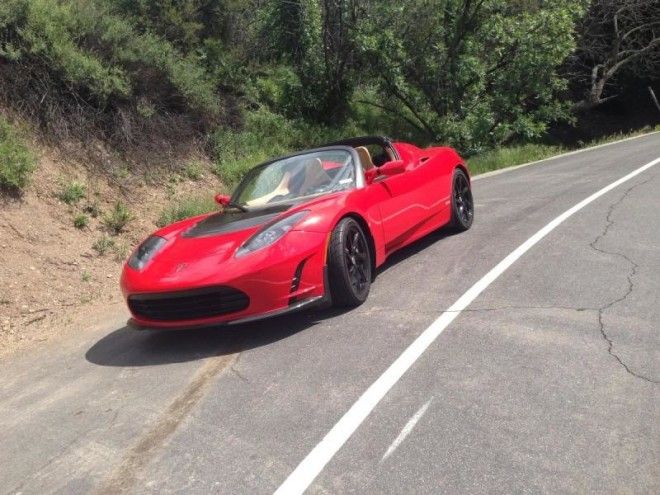
Canyon carving in this baby is brilliant. The thing weighs only about 2,700 pounds, and much of that is battery. It's very toss-able, but also sticky: It stays planted in the corners.

The Roadster Sport is fast in a straight line, but a slice of curving asphalt brings out the best in the car.

Unadorned performance like this requires a few compromises. The navigation and infotainment system, added since I drove the Roadster in '10, is bare-bones.
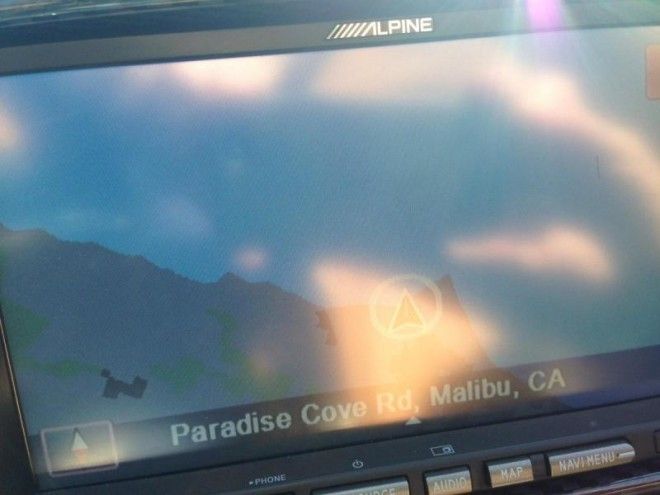
There's a radio.

And you can bring along your own tunes.
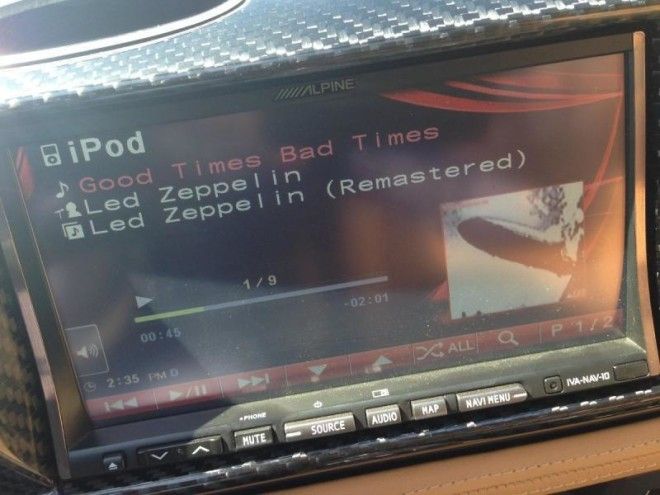
A separate small touch screen allows you to adjust the Roadster's functions. Performance mode intensifies the driving, but cuts into range. Still, it's difficult to drain the battery — something I noticed in '10. A whole day of aggressive driving wouldn't leave you craving an electron fill-up.

What a fantastic time we had back then ...

... and what a fantastic time we had together again, the second-time around.
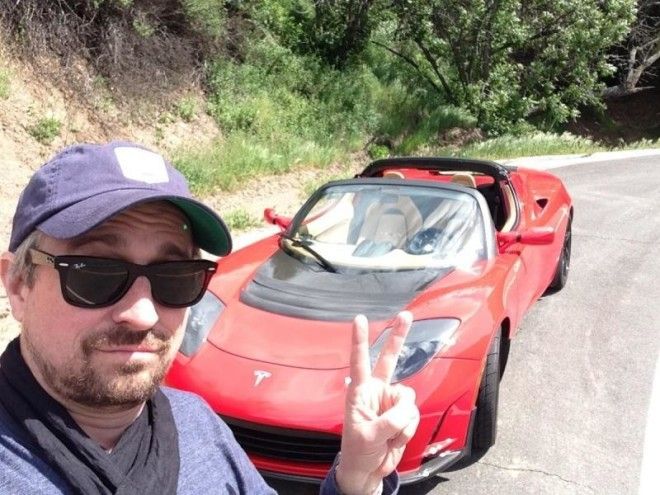
The Roadster Sport, version 3, is still my favorite Tesla. OK, the ride is severe and unforgiving, and the car is tight like a T-38 Air Force training jet, so this isn't the Tesla for everybody. But it's a car for somebody.
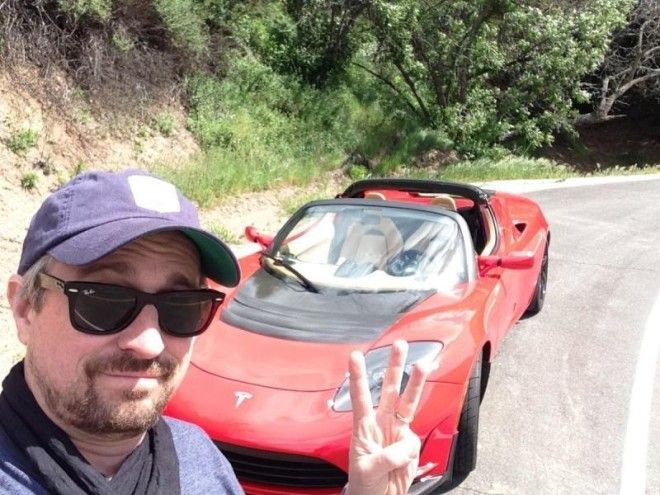
And while I was getting reacquainted with the car, Tesla was entering a brave new era.
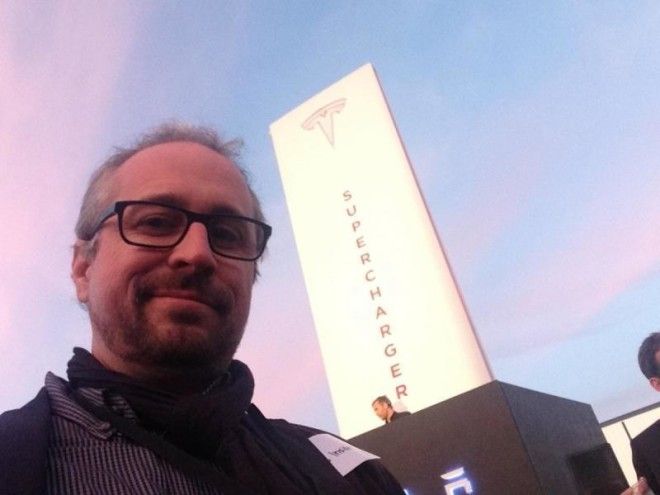
Elon Musk rolled out the newest vehicle from the company, the long-awaited, mass-market Model 3.
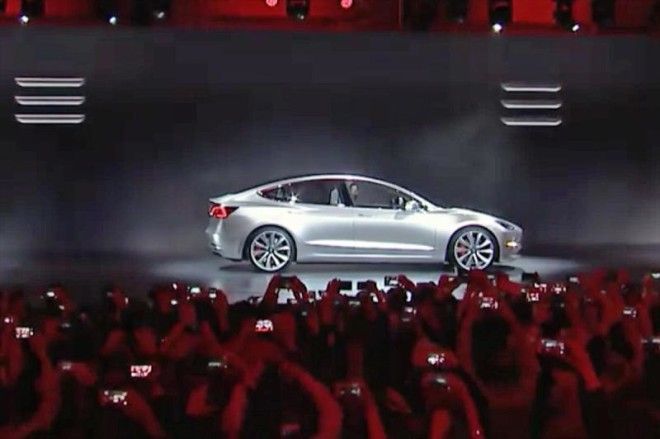
So I closed a circle of sorts. I got a test ride in the Model 3, the car of Tesla's future ...

... but I also renewed my relationship with Tesla's quite glorious and thrilling past. Wow! The Roadster is still one hell of a great car!
